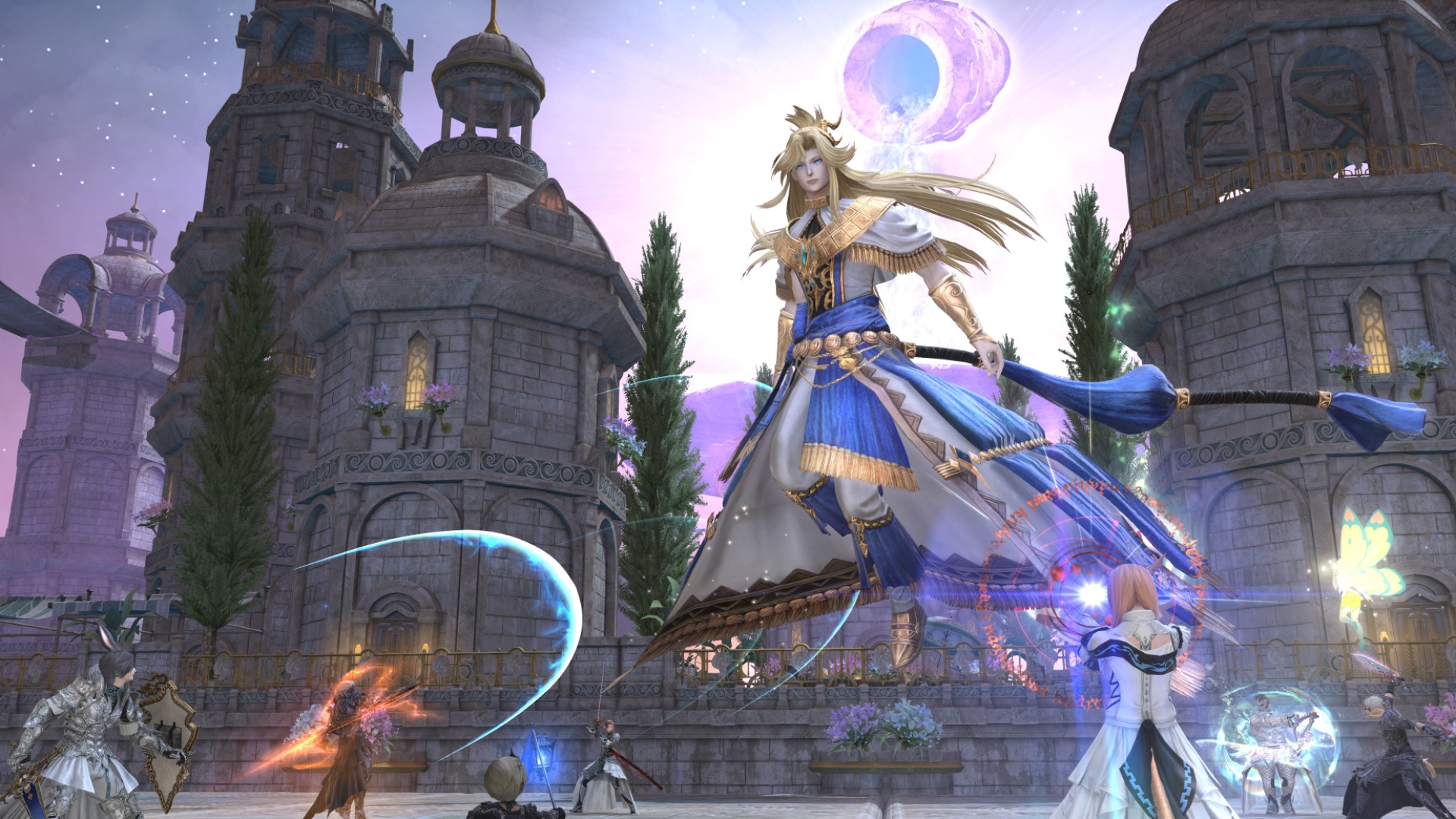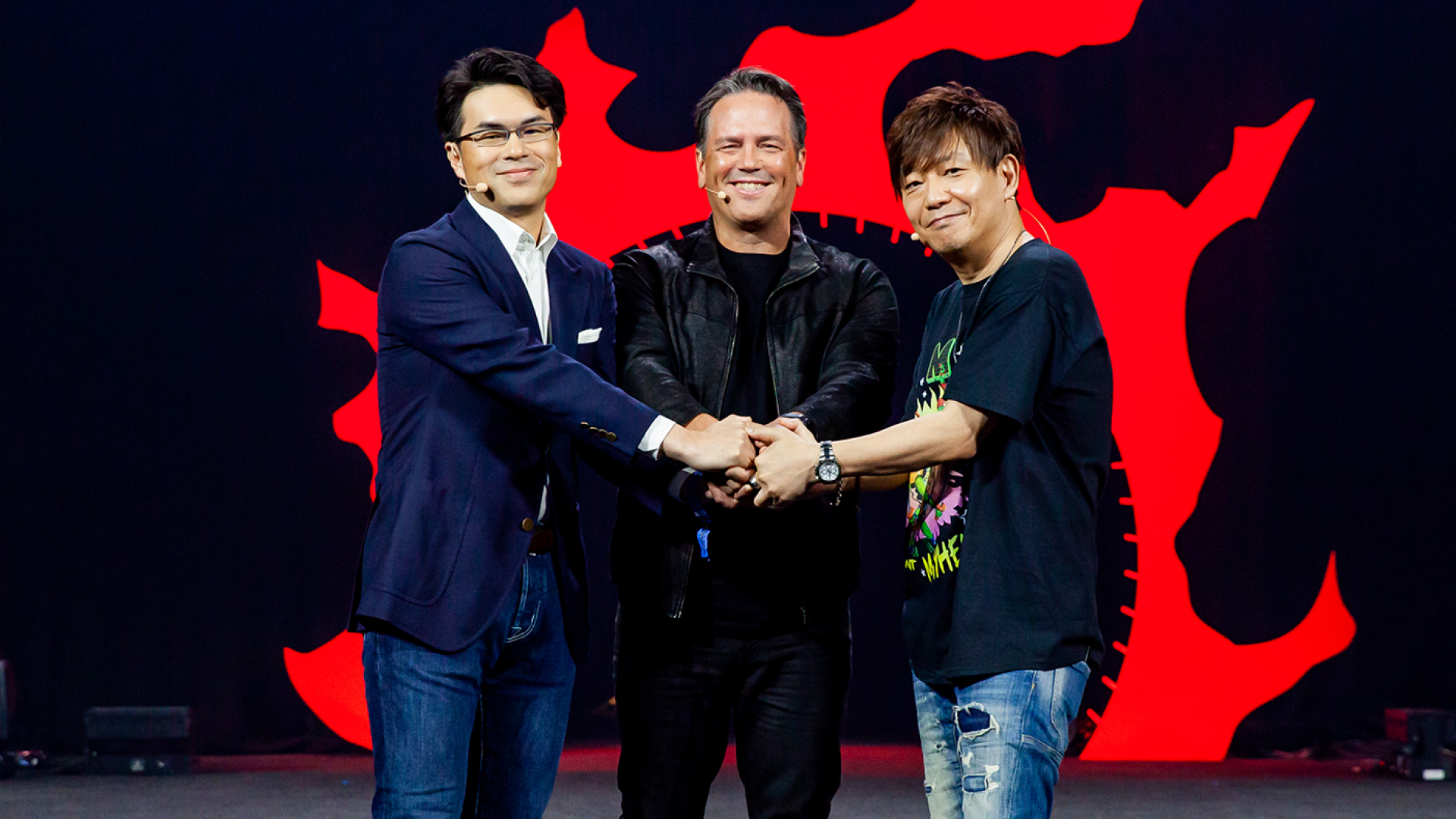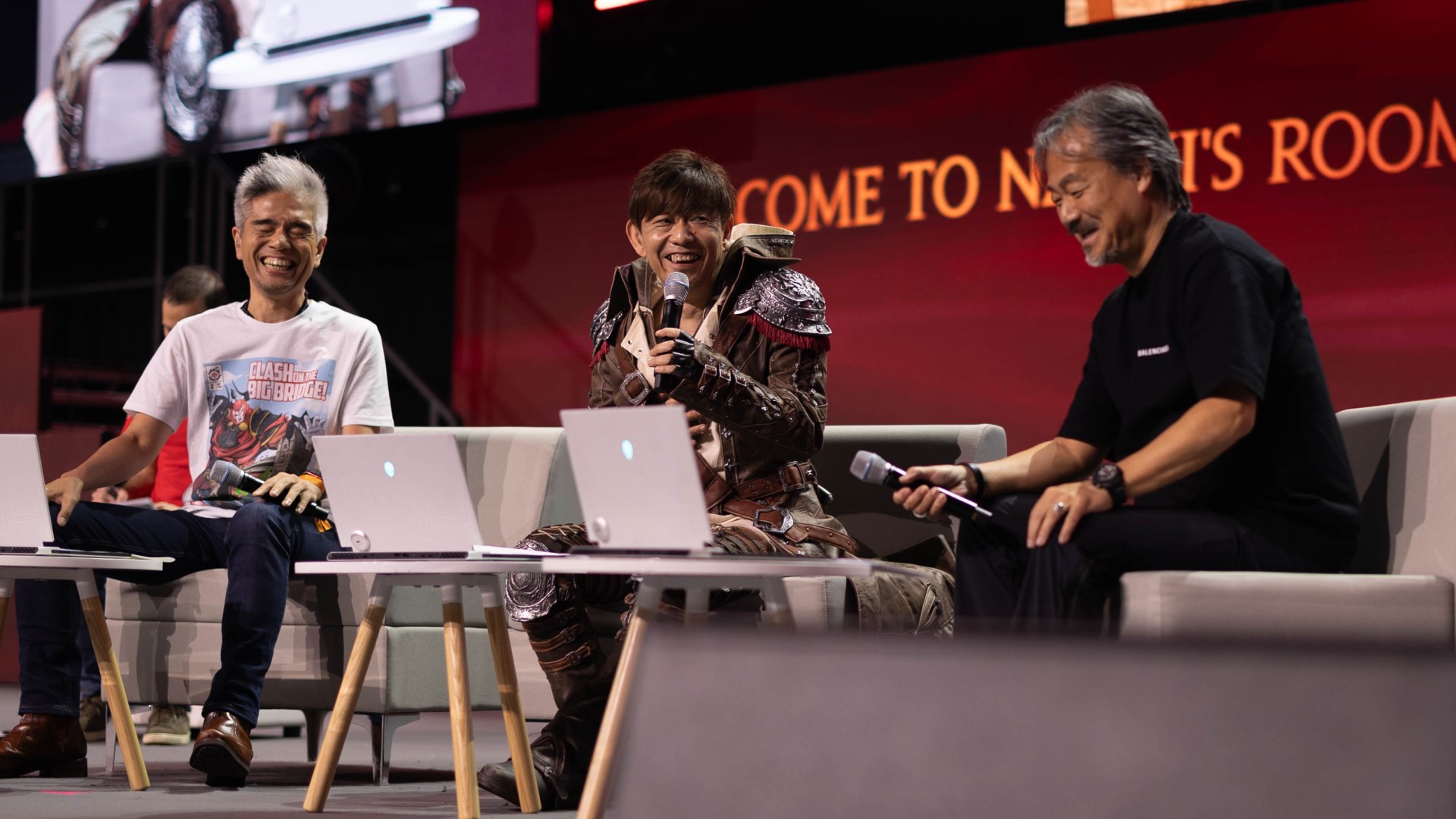
The term Japanese Role Playing Game (JRPG) may seem innocuous at first glance but carries with it a certain amount of baggage. On paper, a JRPG refers to any RPG that exhibits qualities traditionally associated with iconic Japanese game series like Final Fantasy and Dragon Quest. Larger-than-life art styles and bombastic high-drama are the norm in these games alongside set-piece boss fights and complex battle systems.
Unfortunately, this term is also something of a double-edged sword. It allows critics to frame role-playing games developed in Japan as separate from ‘Western’ RPGs - caught in their own bubble and cut off from the wider video game ecosystem.
However, the DNA of Final Fantasy 14 - one of the biggest and best MMOs out there - suggests that this divide is something of an illusion. Though the spikey hair and large swords of Final Fantasy may look at odds with the grit of Western RPGs, scratch the surface and you’ll see that they share common roots and influences.
Speaking at a press conference at the Final Fantasy 14 London Fan Festival, the MMO’s director Naoki Yoshida made clear, in no uncertain terms, that he drew a great deal of personal inspiration from ‘Western’ video games.
The term 'JRPG' is something of a double-edged sword
“I’m a huge Blizzard fan”, stated Yoshida, when asked about his dream crossover. Also, the producer of Final Fantasy 16, Yoshida introduced himself as “a fan of games from all over the world” and how this was a motivating force when it came to building “crossovers with other franchises.” Though he took the time to elaborate on how he’d love a Diablo 4 crossover for Final Fantasy 14, what’s noteworthy is how the veteran developer spoke of how such a thing would “generate more hype and excitement for the overall industry.” It’s clear that Yoshida sees Final Fantasy 14 as part of the global tapestry of video games, contrary to the idea of JRPGs as niche or aloof.
A world unsundered

Yoshida has previously made his distaste for the term ‘JRPG’ clear. “When this term first appeared 15 years ago… it was like a discriminatory term [...] as though we were being made fun of for making these games” (via PushSquare). To many, the term remains othering, casting Japanese-made RPGs as part of an out-group. This is where the phrase gets its historical baggage.
At the Fan Fest press conference, Yoshida spoke about how he was a “die-hard Xbox gamer” and how “delivering the game to many more fans” on Xbox was a “dream that [he’d] had for a long time.” When asked who was the happiest about this development, he wryly replied: “Me and [CEO of Microsoft Studios, and head of the Xbox brand] Phil Spencer.”
By speaking in these global terms, it’s clear that the director wished to break down perceived cultural boundaries and have Final Fantasy be as international in its ambitions as Microsoft and Xbox.
During that same press conference, Yoshida also spoke fondly of 90s MMORPG Ultima Online. “When I played it, it really shocked me. Back in the early stages of Ultima Online, there was a sense of chaos, but also a sense of freedom. I would like to create something close to that sense, but… if you were to create that kind of MMO now, it probably wouldn’t sell.”
The works of Garriott and Origin Systems were formative for Japanese developers
For those not in the know, Ultima Online is a seminal MMO from Origin Systems released back in 1997 and was produced by renowned developer Richard Garriott. As inspirations go, Ultima Online is firmly rooted in what some would call the ‘Western’ tradition of MMORPGs. MMORPG.com credits Ultima Online with the “core ideas and concepts that have driven the MMO genre for 21 straight years.”
What’s crucial here is that Yoshida and his contemporaries were playing these games during the early days of their release. The works of Garriott and Origin Systems were formative for Japanese developers, as were the works of Japanese game design legends like Hironobu Sakaguchi or Yuji Horii, the fathers of Final Fantasy and Dragon Quest respectively.
Bursting the bubble

Yoshida’s remarks in regards to Xbox, Diablo 4, and Ultima Online about Final Fantasy 14 hint at a common history for ‘Japanese’ and ‘Western’ RPGs which, when explored, shows us exactly how flimsy this perceived divide has always been.
Hironobu Sakaguchi himself, the guest of honor at Final Fantasy 14’s London Fan Fest, drew heavily from Dungeons & Dragons (D&D) when creating Final Fantasy. It’s also well known that the Final Fantasy series itself was inspired by what Sakaguchi called the “genius” of Yuji Horii’s Dragon Quest games. However, both series looked to D&D’s earlier editions as well, rooting their turn-based mechanics firmly within the satisfying chance-based arithmetic of Gary Gygax’s influential pen-and-paper RPG.
Hironobu Sakaguchi drew heavily from Dungeons & Dragons when creating Final Fantasy
Speaking with Forbes back in 2018, the creator of Dragon Quest, Yuji Horii, spoke about how his first games were intended to take care of the “nasty little chores” that pen and paper RPGs demanded of their players “such as working out all the other monster parameters and behavior and things like that. There were a lot of advantages to be had by letting a computer handle all of that for you.”
Inspired as it was by Dragon Quest, the early Final Fantasy games were so stylistically and mechanically similar to D&D that assets in the original Final Fantasy had to be changed to avoid lawsuits (via TheGamer). The title also embraced Advanced Dungeons & Dragons’ idea of class specializations, allowing warriors to become knights, monks to become masters, and mages to become wizards.

Final Fantasy 14 contains the essence of every game that influenced the original Final Fantasy and all of its sequels. The MMO is, as Yoshida said at the press conference, a “theme park of sorts for the Final Fantasy franchise.” Sakaguchi, Gariott, and Gygax are all contained within, their works embedded into the structure of the MMO’s various ‘rides.’ Even Final Fantasy 14’s class system borrows from Final Fantasy and D&D’s shared class design, with all of the game’s original high-level jobs being a refined version of a basic ‘class’ that allows you to unlock them.
Final Fantasy 14 isn’t a global game because of its ambitious crossover events or Xbox distribution deals, it’s a global game because the design fundamentals honed by Yoshida and his predecessors exist within the same melting pot as most other RPGs.
Yes, there may be aesthetic differences, but Final Fantasy 14 is no less dedicated to taking care of those “nasty little chores” than the likes of Baldur’s Gate 3. All of these games exist as part of the same continuum. Any talk of an arbitrary divide between ‘Eastern’ and ‘Western’ RPGs misses the shared heritage and decades of cross-pollination that have helped form these titles.
Want more great narrative-driven titles? Check out our lists of the best story games and best single-player games.







